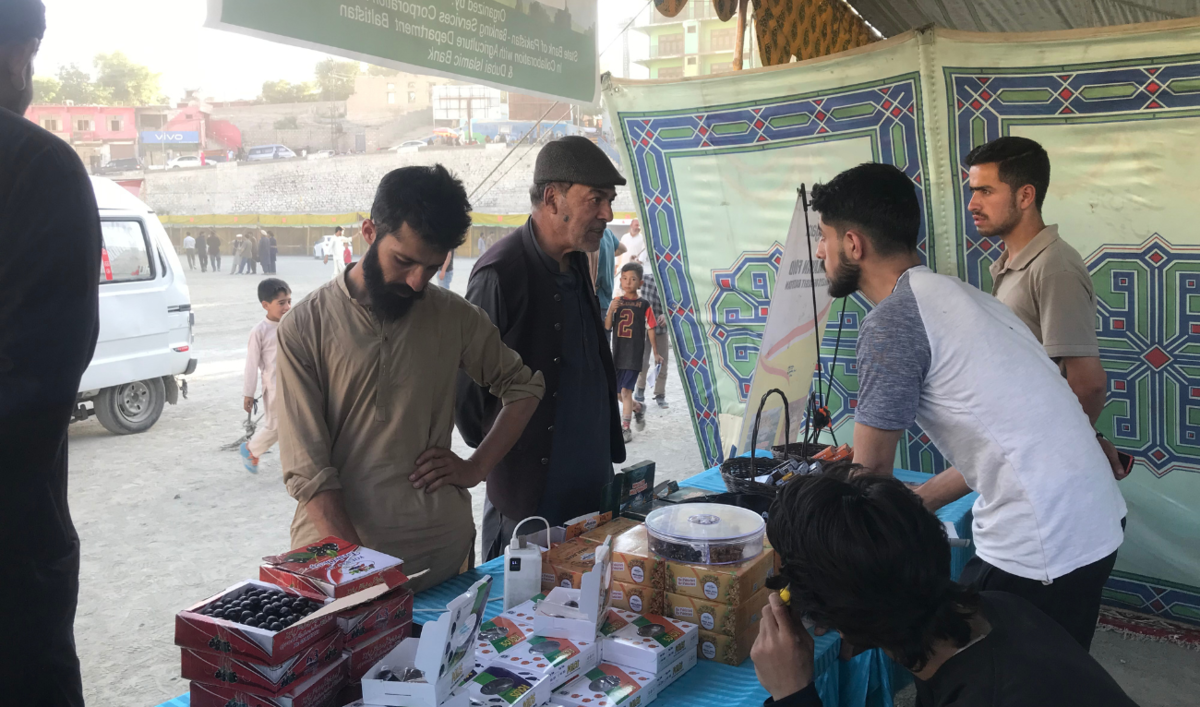KARACHI: Amid Ramadan price hikes and low wage growth across households on the eve of Eid Al-Fitr, there is one safe haven for middle- and working-class shoppers in the Pakistani megacity of Karachi: Kagzi Bazar.
The at least 50-year-old market in the heart of old Karachi, one of the most densely populated areas in the city of over 20 million people, offers a wide range of goods including clothes, jewelry, footwear, bangles, hand bags and other accessories at affordable prices, buyers and sellers told Arab News ahead of the Eid Al-Fitr holiday.
The Pakistan government has announced Eid holidays from Monday, Mar. 31 to Wednesday, Apr. 2.
“It’s comfortable for us in terms of affordability. This market is within our budget, we can’t go to other markets,” Zainab Shafiq, a housewife and mother of two who has been shopping at Kagzi Bazar since she was a child, told Arab News.
“My entire family, including my in-laws as well as my own family, shop here,” she added as she browsed through glittery sandals and bangles at a roadside stall.
Pakistan was beset by inflation above 20 percent since May 2022, registering a high of 38 percent in May 2023, as it navigated reforms under an International Monetary Fund bailout program. While the annual inflation rate slowed to 1.5 percent this February, the lowest in nearly a decade, and the prices of goods are now rising more slowly, the cost of living has not become more affordable in the absence of wage growth for most households.
That is why many middle class and low-income families turn to Kagzi Bazar for Eid shopping over other markets like Tariq Road and Gulf Market in Karachi.
“The prices here are quite reasonable compared to other markets, that’s why we shop here,” 9th grader Mehek Fatima, who was visiting the market with her mother, said.
“Malls have the same variety but the prices here are reasonable compared to them.”
Mohammad Haroon Abdullah, who has been running a garment shop in Kagzi Bazar for the last 25 years, said people visited the market from different parts of Karachi and even from outside the Sindh province because of cheaper rates.
“The entire Balochistan, interior Sindh [provinces] come to shop here,” he said. “The entire Lyari [neighborhood], customers from Keamari, Saddar, New Karachi and so many other localities come to us. Even people who have shifted from this locality come from Soldier Bazar and Garden.”
Indeed, the low prices have been bringing loyal customers to Kagzi Bazar for decades.
“He is more like my brother,” Shenila Abdul Ghaffar told Arab News, pointing toward the owner of a cosmetics shop.
“For almost 28 years, I have been coming to this shop and buying everything from here. My children, daughter-in-law, everyone shops here,” she added.
“At a time when inflation rate is high, it’s easier for us to adjust with our budget here.”

















